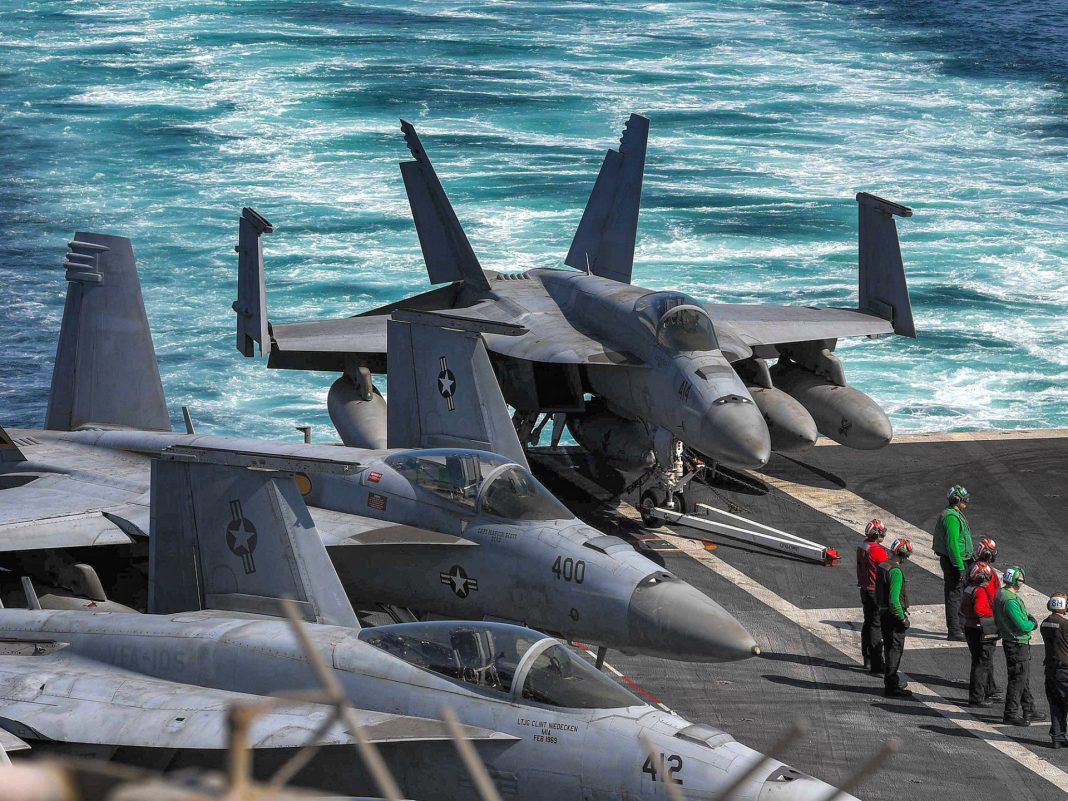Washington’s latest air raids began around midnight on Saturday and hit more than 85 targets in Syria and Iraq, the US Central Command (CENTCOM) said in a statement. The operation involved “numerous aircraft”, including long-range bombers flown from the US, which dropped over 125 precision munitions on their targets.
Those targets included command and control centers, intelligence sites, weapons caches, and supply-chain facilities of Iranian-backed militias, as well as “their IRGC (The Islamic Revolutionary Guard Corps) sponsors who facilitated attacks against US and coalition forces”, CENTCOM added.
The bombings follow a series of assaults on American military bases in the Middle East, including a drone attack that killed three American soldiers and wounded more than 40 others at secretive US installation in Jordan. That base, called Tower 22, is located near the Syrian and Iraqi borders.
The attack on Tower 22 was “planned, resourced and facilitated” by the Islamic Resistance in Iraq, White House National Security Council spokesman John Kirby said on Wednesday. The group consists of multiple militias, including Kataib Hezbollah, which has launched multiple rocket and drone strikes against US forces in the region since the Israel-Hamas war began in October.
Kirby suggested that the US response would be carried out over multiple days. It “won’t just be a one-off”, he stated, adding, “As I said, the first thing you see will not be the last thing”. He noted that President Joe Biden is still trying to avoid a broader war with Iran.
In a statement issued on Friday, Biden said he personally ordered the Pentagon’s response to last weekend’s deadly drone attack on a Jordanian military base housing US troops.
“Our response began today,” Biden stated, adding that retaliatory strikes would continue “at times and places of our choosing”.
Media reports in recent days raised concern that Biden was telegraphing his plans and giving the militias too much time to take preparatory steps, such as vacating obvious targets. Pentagon chief Lloyd Austin tried to deflect those worries on Friday, denying that the administration was giving Iran too much warning. He said the US response will be “multi-tiered” and insisted that neither he nor Biden would tolerate attacks on American troops.
Biden has blamed Iran for supplying the weapons that militants have used in attacking US forces in the Middle East more than 160 times since the Israel-Hamas war started. He has faced political pressure to respond aggressively, including calls by Republican lawmakers to launch devastating strikes inside Iran.
Tehran has stressed that regional resistance groups do not take orders from Iran, nor does the Islamic Republic have a role in their decisions to carry out retaliatory operations in defense of Palestine.
“Iran is not involved in the resistance groups’ decisions about how to support the Palestinian people or defend themselves and the people of their countries in the face of any aggression and occupation,” Foreign Ministry Spokesman Nasser Kanaani stated.
He cautioned that leveling baseless accusations against Iran is a projection and a conspiracy by those who see their interests in dragging the US feet in a new conflict in the region to cover up their own problems.
“Iran monitors the developments in the region with readiness and vigilance and the responsibility for the consequences of provocative accusations against Iran rests with the perpetrators of such baseless claims,” he added.
